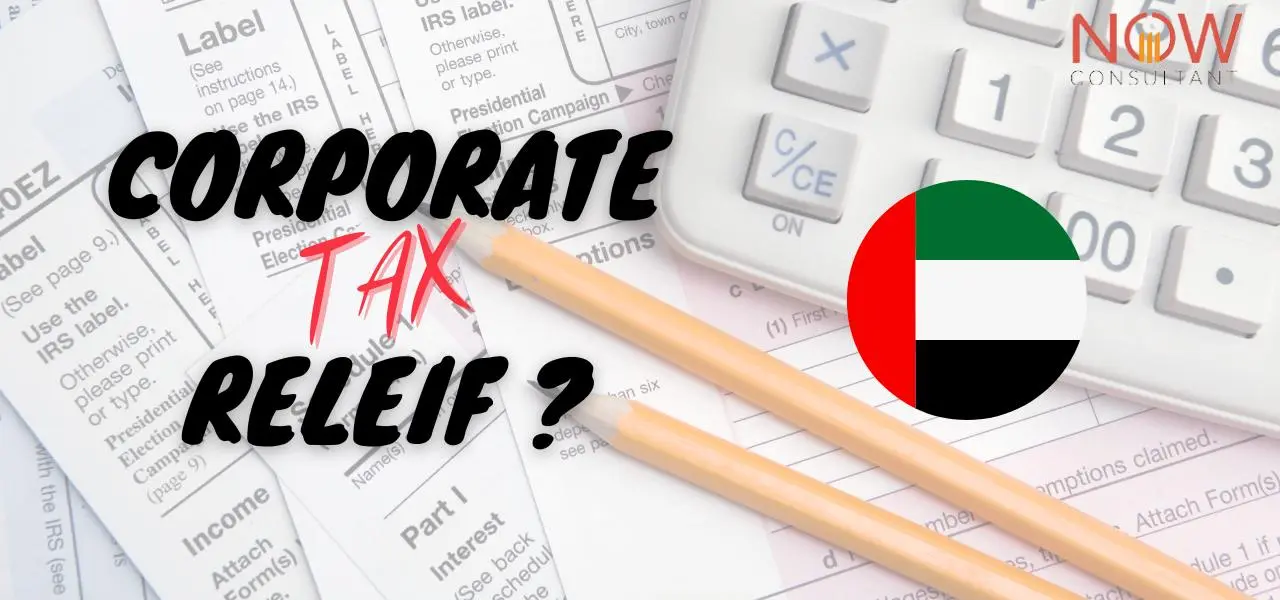The main objective of businesses operating in the United Arab Emirates (UAE) is to reduce corporate tax liability due to the country’s corporate tax laws. Businesses can employ effective strategies to optimize their tax planning and save money to achieve this goal. Following are valuable tips that can help businesses reduce their corporate tax liability in the UAE.
This article shares expert tips and teaches you how to save corporate tax in the UAE while staying within the legal framework. Dive in to enhance your tax strategy and improve your financial standing.
Tips to Reduce Business Tax Liability in the UAE
1) Maximizing Deductions
To minimize tax liability, businesses should consult tax experts to identify the scope of deductions applicable to their business costs. Businesses can reduce taxable income by deducting “ordinary and necessary” expenses, such as travel and advertising. Detailed records should be maintained to claim expenditures and acquire tax credits accurately.
2) Seeking the Expert Services of an Accountant
Hiring an expert accountant can be a crucial strategy to save businesses from paying excessive taxes. Accountants assist in analyzing overall taxes, net profits, cash flow, and expenses to ensure enterprises avoid potential problems and optimize their tax planning.
3) Effective Record Keeping
Maintaining thorough records throughout the year is crucial for filing correct tax returns. Proper documentation of company spending is essential for record-keeping. By organizing and retaining the necessary documents, businesses can streamline the tax filing process and ensure compliance with tax regulations.
4) Improving The Business Structure
Businesses operating as sole proprietors should consider reevaluating their business structure. Choosing a limited liability company (LLC) structure can provide advantages as it is a “pass-through entity” where business income can be taxed in various ways. However, transitioning to an LLC requires careful consideration of factors such as paying oneself an adequate income and evaluating potential risks.
5) Avoiding Consequences from Late Payments
To avoid penalties and interest charges, businesses should gather all necessary paperwork well before the year-end and consider short-term working capital loans or consolidation loans to prevent rushed tax returns and additional costs.
6) Carefully Choosing Tax Advantages
When seeking tax deductions, businesses should make informed decisions. For example, spreading the expense of purchasing machinery and equipment over multiple tax years can benefit overall tax planning. Evaluating the long-term impact of tax advantages is crucial for making the best decisions.
7) Availing Corporate Tax Advisory Services
Seeking the services of reputable corporate tax consultants in the UAE, such as Now Consultant’s Corporate Tax Consultancy Services, can help businesses establish effective mechanisms for reducing tax liability. Accredited tax consultants provide expert advice on tax planning, optimization, compliance, and reporting, enabling businesses to navigate the complexities of corporate tax law.
8) Taking Advantage of Tax Exemptions and Incentives
The UAE government offers tax exemptions and incentives to businesses in specific industries. These exemptions and incentives apply to entities such as Government Entities, Free Zones, and Special Economic Zones. Businesses should thoroughly research and identify the tax advantages available to them based on their industry and location. Businesses can significantly reduce their corporate tax liability by taking advantage of these exemptions and incentives.
9) Properly Structuring the Business
Properly structuring your business can significantly influence your corporate tax liability. Factors to consider include:
- The nature of your operations.
- The number of shareholders.
- The level of liability you’re willing to bear.
10) Maintaining Financial Records
Accurate financial record-keeping is crucial for minimizing corporate tax liability. Businesses should maintain well-organized financial records, including income statements, balance sheets, and cash flow statements. Proper documentation of income and expenses allows businesses to claim eligible deductions and credits, ensuring compliance with tax regulations. Implementing robust accounting software and regular bookkeeping practices can streamline the record-keeping process and facilitate tax planning.
11) Timely Corporate Tax Return Filing and Payments
Meeting corporate tax return filing and payment deadlines is crucial to avoid penalties and interest charges. Businesses should familiarize themselves with the UAE’s tax filing deadlines and clearly understand the required documentation. Proactive tax planning can help businesses allocate funds for tax payments and avoid last-minute financial strain. By submitting accurate and timely tax returns, businesses can reduce the risk of penalties.
Conclusion
In conclusion,
By implementing these strategies, businesses can save money and enhance their financial stability, allowing them to allocate resources toward their growth and development. It is recommended that businesses consult with professional tax advisors, such as Now Consultant, to tailor these tips to their specific circumstances and ensure adherence to the latest tax regulations in the UAE. With the proper guidance, businesses can effectively manage their tax obligations and optimize their financial success.









